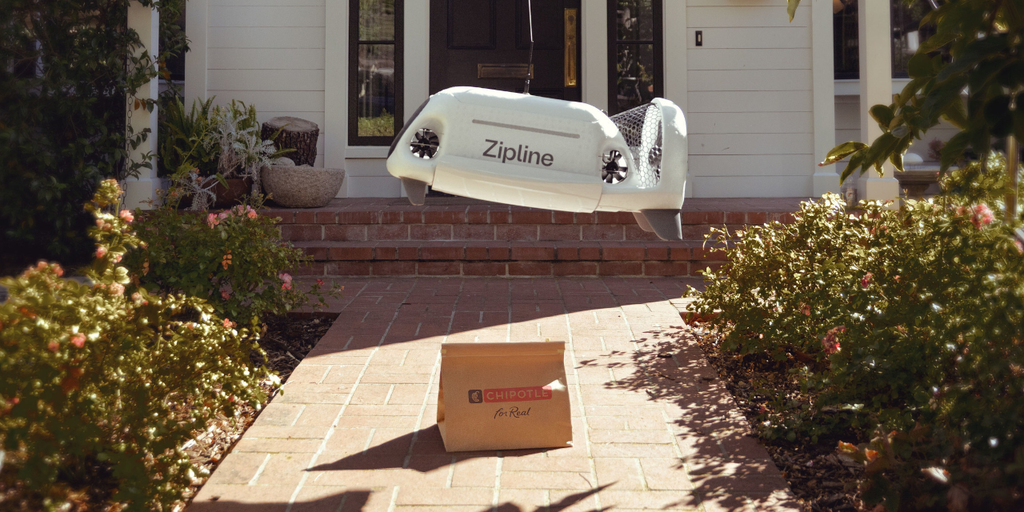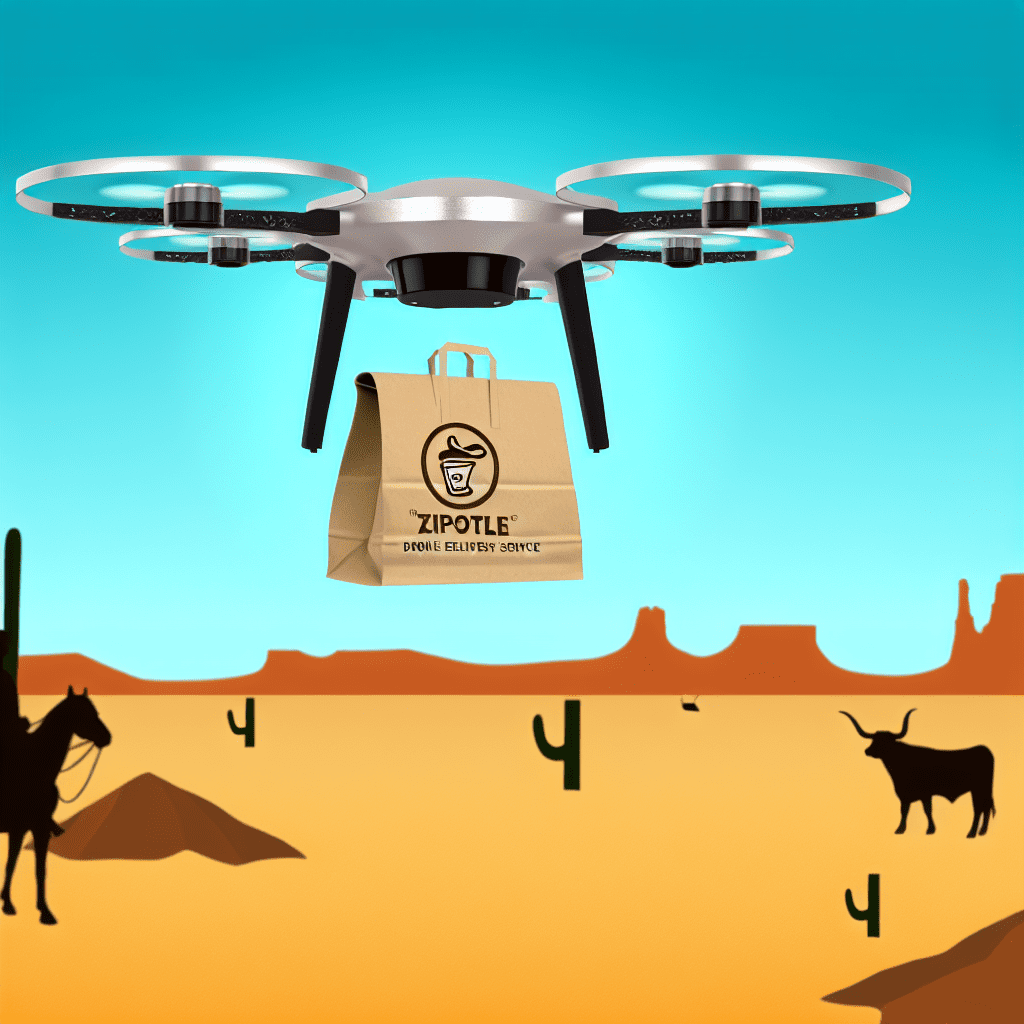
In brief
- Chipotle is set to introduce drone delivery through Zipline.
- The pilot will occur in Rowlett, Texas, a suburb of Dallas.
- Expect to wait for flying burritos in busier areas for a while.
Your hefty triple steak, double rice, extra queso meal is ready for takeoff.
At least in one Texas town: Chipotle has announced a partnership with Zipline, a drone delivery firm, to bring orders directly to customers in the Dallas region. The pilot program, “Zipotle,” begins this week with select early adopters, followed by a broader launch in the upcoming weeks.
Residents of Rowlett, Texas can place Chipotle orders via the Zipline app. Once prepared, employees secure the food in a “Zipping Point,” where it’s picked up by one of Zipline’s electric drones, known as Zips. The drone travels directly to the customer’s location, hovers approximately 300 feet above, and lowers the order with a tether, dropping it in their yard or driveway.
Today, Chipotle announced autonomous burrito delivery. They’re calling it “Zipotle”.
As a one-time devotee of burrito bowls, it’s surreal to now have Chipotle delivered by a drone in under 10 minutes. @ChipotleTweets pic.twitter.com/xk8apO2gfO— Keller Rinaudo Cliffton (@Keller) August 22, 2025
These drones can transport up to 5.5 pounds per trip, with the potential to expand to 8 pounds in the future. A triple steak, double rice, extra queso meal weighs around two pounds, ranking at the upper tier of the fast-food chain’s offerings.
Why drones?
Chipotle aims to reduce delivery times while ensuring the food remains as fresh as if dining in. The company also highlighted Zipline’s zero-emissions aircraft and their quiet performance.
“Zipotle offers a quick and convenient delivery solution that allows customers to enjoy our authentic food from areas that are typically hard to reach, like backyards and public parks,” said Curt Garner, Chipotle’s president and chief strategy and technology officer.
Zipline CEO Keller Rinaudo Cliffton remarked: “With a simple tap, food appears—hot, fresh, and incredibly fast. What seemed like science fiction is on the verge of becoming routine.”
Zipline has a history in critical deliveries, initially providing blood and medical supplies to remote hospitals in Rwanda. Today, the company operates in four continents, having completed over 1.6 million deliveries and logged 100 million commercial miles. Its foray into food and retail reflects its ambition to reshape the “last mile” of logistics.
As for Chipotle, which embraces innovation in its operations, its stock has surged 264% over the last decade, surpassing the restaurant industry’s performance in sales and profits, according to Yahoo Finance.
Not so fast
Don’t expect drone burrito delivery in New York City anytime soon. The suburban backdrop of Rowlett, with its spacious yards and minimal obstacles, serves as an ideal testing site. However, in bustling urban environments where delivery demand is high, drones encounter significant barriers: limited airspace, a maze of power lines, and FAA restrictions on flights beyond the visual line of sight.
Public acceptance poses another challenge. While a couple of drones delivering meals may seem appealing, the sight of numerous drones buzzing over urban neighborhoods nightly could quickly become bothersome. Additionally, customers often find traditional scooter and car couriers simpler and more affordable options.
If this pilot in the suburbs succeeds, it may pave the way for gradual advancements in aerial logistics. With some luck, you might also see drone deliveries of Tums and other items in the future.
Generally Intelligent Newsletter
A weekly AI journey narrated by Gen, a generative AI model.

